A Day in the Life: Adelaide Nasimiyu, Field Officer in Western Kenya
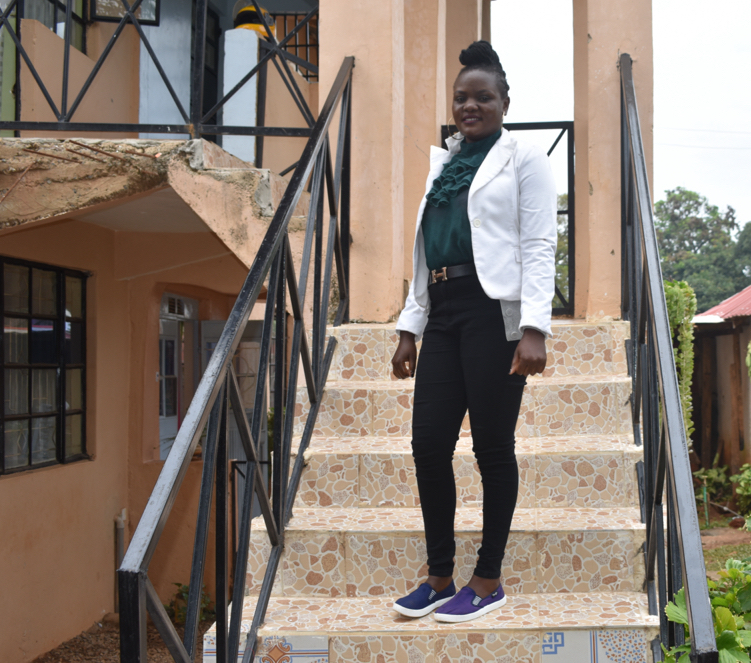
Adelaide on the steps to her home
It’s 5:00 am, and Adelaide is already up; it’s time for morning devotions and reading a book. By 7:00 am, Adelaide is out the door after making herself breakfast – an hour earlier than she used to leave before the pandemic. Her earlier start is due to the safety guidelines of avoiding public transport, as she was accustomed to using to get to work each day.
Adelaide walks a half hour to her office in Western Kenya, where she works as a Field Officer supporting schools and communities in their quest for clean water.
Field Officers manage many aspects of our WASH program in Western Kenya, including evaluating potential future project sites, managing water point construction, training communities and schools on sanitation and hygiene best practices, conducting monitoring surveys, writing reports, and much more.
Last year, we added “becoming an expert in COVID-19 prevention” to our Field Officers’ list of daily tasks so that they could sensitize and train every group we’ve ever worked with on how to stay safe from the virus.
Since then, a lot has changed in Kenya, including in Adelaide’s job and life outside it. We asked Adelaide to catch us up on what it takes to be a field officer, and what keeps her busy and engaged when she’s not at work. The following interview has been edited for clarity and length.
“My name is Adelaide Nasimiyu. I am a Field Officer in this role since January 2019. I am from Bungoma County (Kenya) but currently reside in Kakamega because of work. I am single with no children. My personal interests are empowering young girls through the distribution of sanitary towels, and baking. My hobbies are reading books, traveling, and swimming.”
Before the COVID-19 pandemic, what did you focus on in your position at work? What did an average day look like for you?
“On Mondays, I had meetings at the office to give my weekly reports and get the way forward for the week. Tuesdays through Thursdays, I woke up at 5:00 am, had my morning devotion, and read a few chapters in a book from 6:00 am to 7:00 am. I prepared my breakfast while cleaning and getting ready for work. At 8:00 am, I left for work. Usually, I took a motorbike to the bus stop, where I boarded a matatu (bus) to my respective field to supervise my projects. As a Field Officer, my focus is on Baseline Surveys, supervision of my respective projects, training on sanitation and hygiene, monitoring and evaluation, and writing reports.”
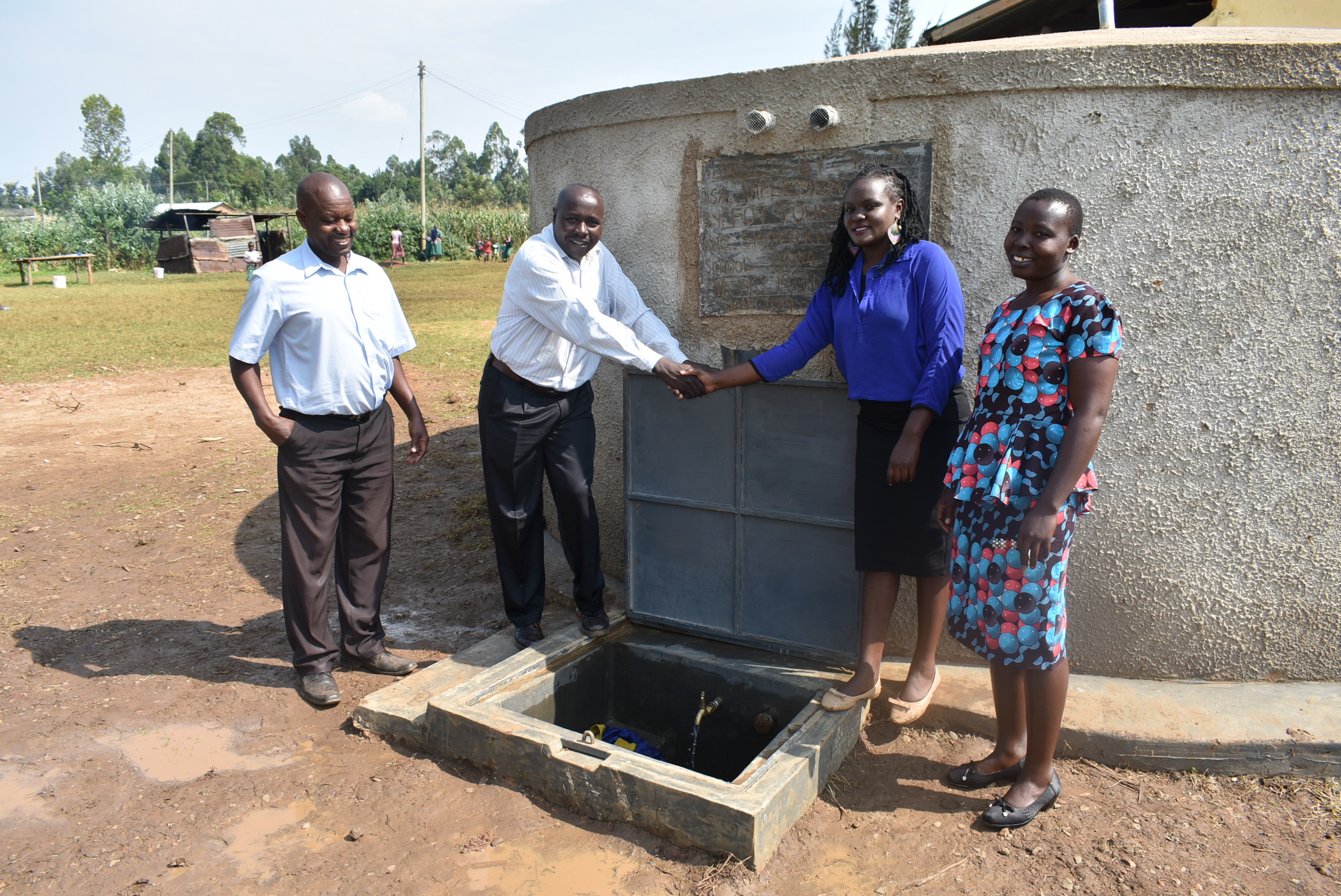
Before the pandemic, Adelaide leads the official handing-over handshake at the Shinyikha Primary School rain tank.
Since the spread of COVID-19, how has your work changed, if at all? Are there activities you are no longer able to do? Are there new activities you have taken on?
“Since the COVID-19 pandemic, I am no longer able to attend physical office meetings. The new activities I take on include community sensitization on COVID-19, including training them on handwashing and how to make and wear masks.”
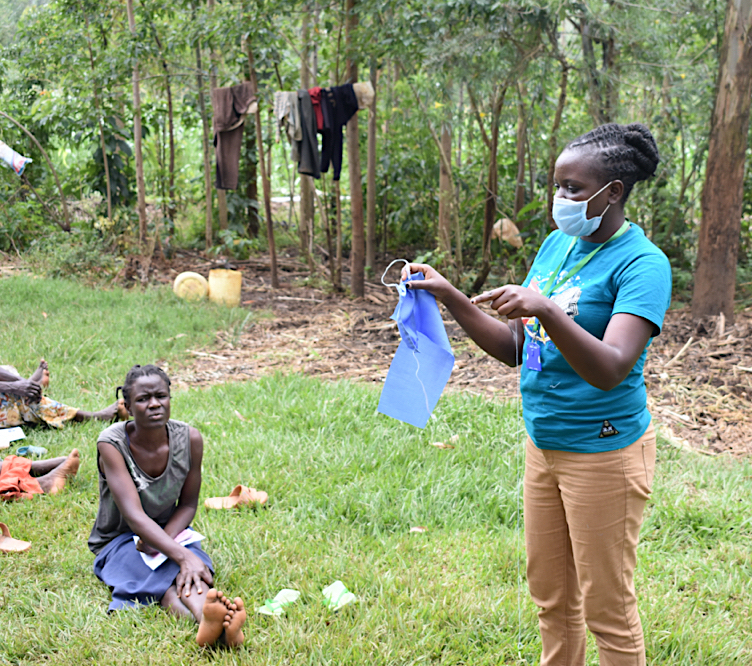
Adelaide trains community members on how to sew a face mask using materials from home during a COVID-19 sensitization training.
Does your job usually require travel of any means? What is the journey like?
“Yes, my job requires traveling. Currently, my colleagues and I use the office van carefully observing the physical distance regulation in our seating arrangements. A one-way trip is approximately 50 kilometers (31 miles). I enjoy traveling, so I find the journeys very enjoyable even though the roads to the community are not tarmacked, and it’s difficult in the rainy season.”
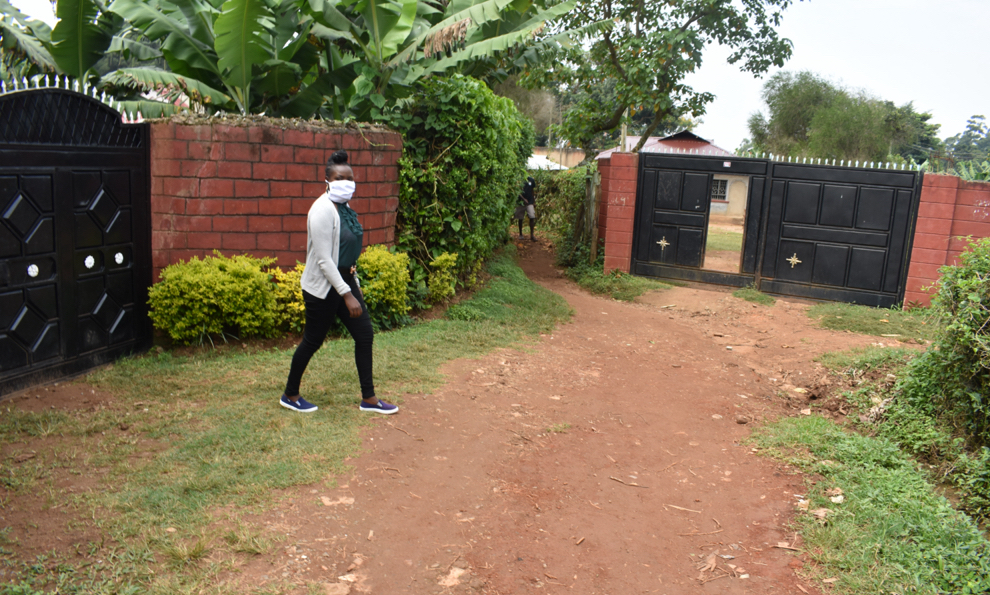
Adelaide begins her walk to work.
Please share a story of the most challenging situation you have ever faced while working with a community or school.
“I encountered my most challenging situation while implementing my Shinyikha Primary School project. The headteacher at the school was not cooperative in mobilizing locally available construction materials. A few times during the project, I would arrive at the field and find out that materials, like sand, were missing. The headteacher would occasionally be unavailable and refuse to answer my calls. Nevertheless, the issues were sorted out, and the project was completed.”
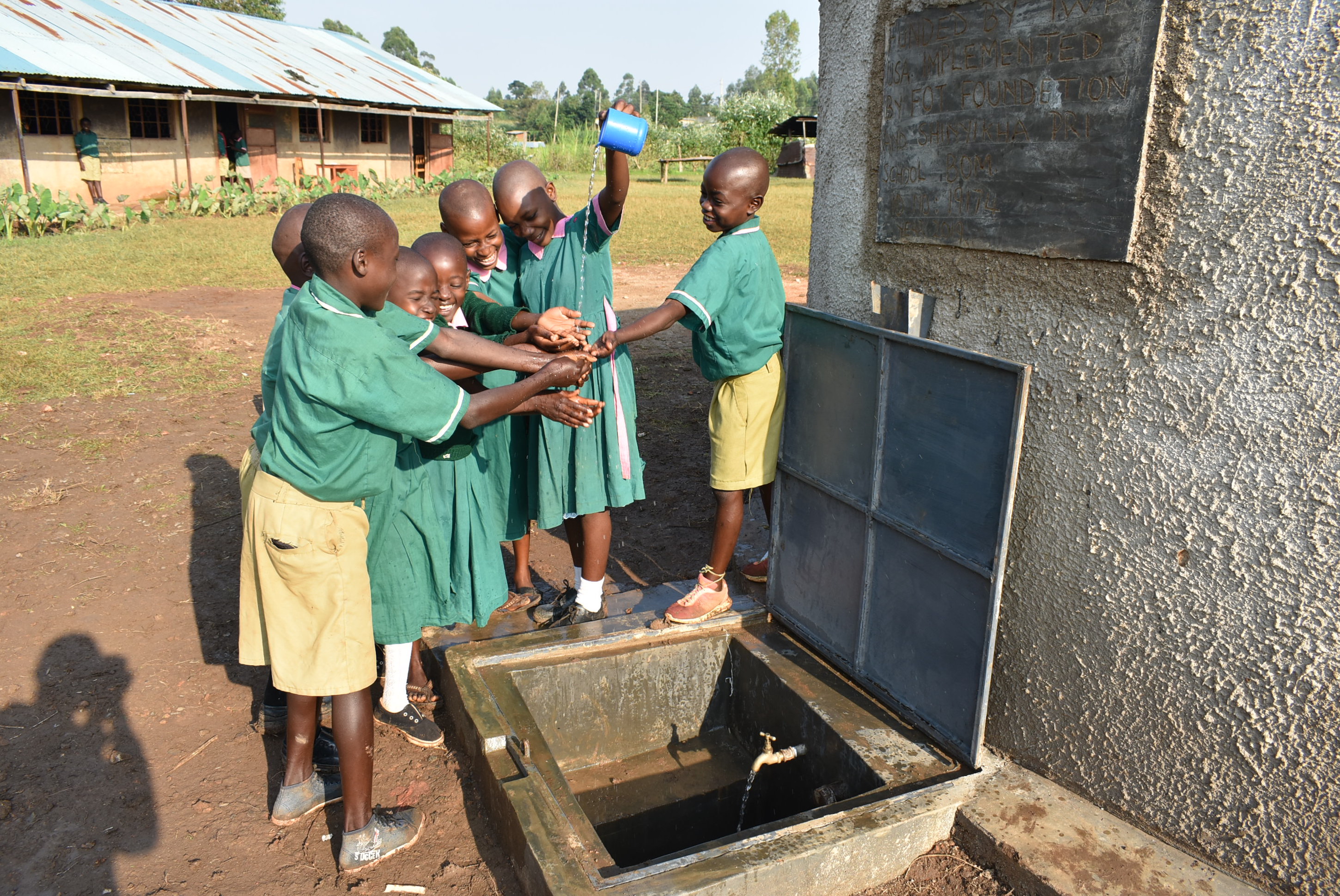
Pupils from Shinyikha Primary School celebrate their rain tank’s completion (before the pandemic).
What about the most rewarding experience you have ever had?
“My most rewarding encounter was after completing a rainwater tank in Mabanga Primary School. Seeing the children singing and dancing, teachers and board members of the school overjoyed, and celebrating the water and sanitation facilities they would have because of the project reminded me why I delight in serving the community.”
Adelaide’s colleagues Emmah Nambuye and Lynnah Akuku dance in line with students and staff at Mabanga Primary School to celebrate the completion of their rain tank (before the pandemic).
What are your long-term hopes and goals for your work?
“I’m hoping to go back to school and pursue project planning and management so that I can get more knowledge with project work and interact better with the community members.”
What do you have planned for tomorrow (work or otherwise)?
“I plan to catch up on my baking, go to the gym, and enroll in driving classes.”
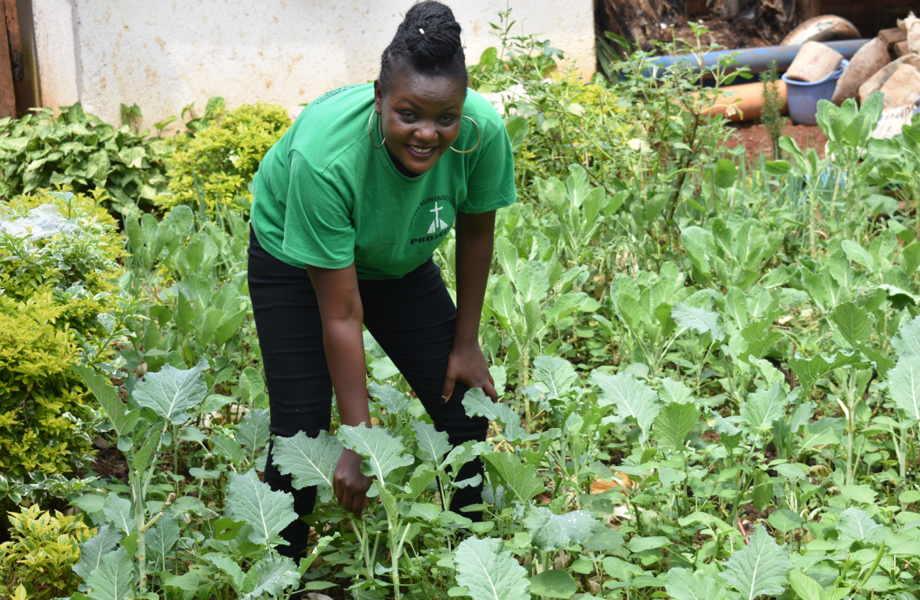
Adelaide looking after her kitchen garden at home.
Tweet